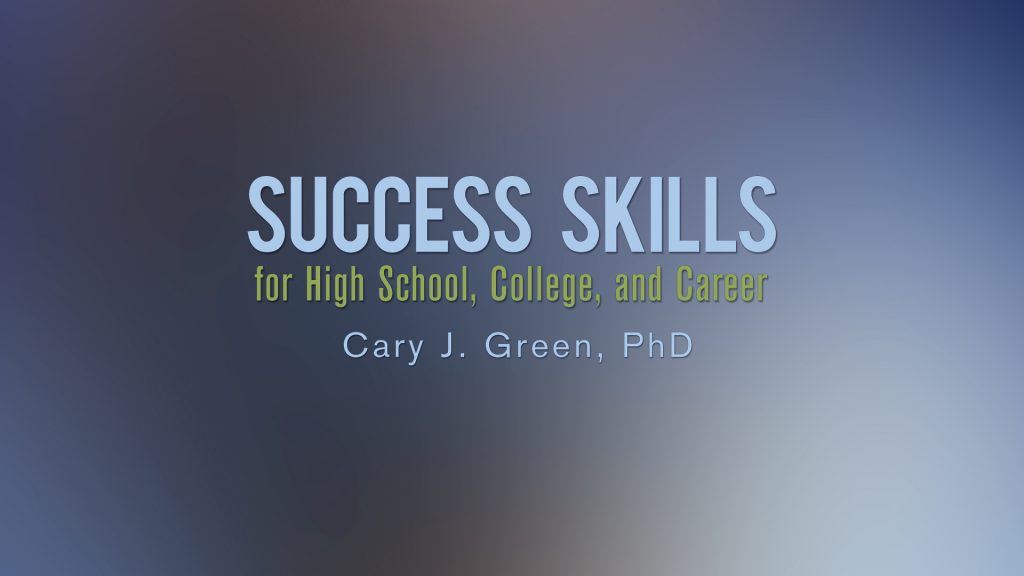By Cary J. Green, PhD
Graduating from college and starting a new career is an exciting time, but it can be a little intimidating as well. Although you may not know exactly what to expect, you can be sure that college and the workplace are different.
As you make the transition from student to employee, allow yourself some time to adjust, and don’t get overwhelmed by the fact that you still have a lot to learn. Recognize that you will have to build a few new skills, develop some new habits, and adjust to the often-hectic pace of the business world. Below are four tips to help you successfully transition from college to the workplace.
1.Understand Expectations
Understanding your employer’s expectations eases your transition into the workplace. As you start your new job, review your position description with your supervisor so you fully understand your job responsibilities and performance expectations. Ask your supervisor how your performance will be evaluated.
Use your job responsibilities and evaluation criteria to develop your goals. Prioritize your time to achieve those goals. Although your effort is important, be sure to gauge your progress by the outcomes you achieve, rather than solely on the time you spend working.
Keep in mind that your position description details the minimum requirements for your position. The “other duties as assigned” statement leaves room for additional tasks. Be flexible and willing to adapt to evolving workplace expectations.
Your workplace likely has a few unwritten expectations as well. Are you expected to attend all company after-hours functions? Do your co-workers routinely work overtime? Can you simply stop by your boss’s office with a few questions, or are you expected to make an appointment?
You can learn much about these expectations, and other aspects of company culture, by being observant of your coworkers and by asking questions. Be attentive to unwritten expectations because they can be just as important as the written expectations.
2.Demonstrate Professionalism
Conducting yourself in a professional manner is another expectation of the modern workplace. Professionalism refers to standards of behavior and performance, and a successful transition to the workplace demands professionalism.
College students may get away with skipping an occasional class or showing up late. Your employer, however, has different expectations. If your work day starts at 8 a.m., be at work, and be ready to work, at 8 a.m. Similarly, if your workday ends at 5 p.m., continue working until 5 p.m. or later. Your schedule may be flexible, but start out by being on time. Doing so sends a positive message.
Your workplace likely has standards for your attire. At this point in your career, you may not own brand-new clothes in the latest fashion. That’s OK. Make sure your attire is professional and aligns with your workplace culture.
The ability to work effectively with a wide variety of individuals is another aspect of professionalism that is essential for new employees. In college, you may have been able to select your biology lab partner, and you could create a study group with your friends. On the job, however, you likely will be working with people who are different from you.
The workplace has generational, cultural, and disciplinary diversity. Professionalism does not require that you agree with everyone or adopt common beliefs. You must, however, be able to work effectively with people from different backgrounds and who have different perspectives.
Finally, professionalism requires that you stay focused on your job. College students often spend time on their phone while in school. This habit, however, must not carry over to the workplace. Avoid texting, and stay off your social media while on the job. At best, these activities diminish your effectiveness by consuming valuable time. At worst, these activities can get you fired.
3.Maintain the Proper Attitude
Your ability to maintain the proper attitude is vital for a successful transition to the workplace. Enthusiasm and curiosity will contribute positively to your transition. Perceived arrogance and indifference will damage your reputation and hinder a smooth transition. An attitude of entitlement is especially detrimental to new hires.
Develop a productive balance of confidence and humility. Be confident enough to step up to challenges, handle setbacks, and benefit from constructive criticism. Stay humble enough to continually learn, and be willing to ask for help when you need it.
A self-motivating attitude greatly enhances your transition to the workplace. Keep yourself motivated by setting and achieving goals as described previously, and be able to do so without the need for personal recognition.
Further, stay motivated and continually contribute to team projects, even if your ideas aren’t dictating the overall team direction. Continuous contribution yields a solid reputation, and this reputation boosts your upward mobility.
4.Get a Mentor
A mentor is an excellent source of insight and advice as you transition into your new career. Your mentor can answer questions that you are not yet experienced enough to ask. Your mentor also can help you navigate company culture and make you aware of unwritten expectations.
A peer mentor is beneficial as well. Connect with some college friends and discuss with them their transition experiences. Discuss things that are going well, and also talk about the struggles you face. Ask for the advice they are getting from their mentors, and learn from their experiences. Share your successes and insights as well.
Congratulations on your new job. Follow these tips to ease your transition into the workplace. Pay it forward by helping new hires in the future.
By integrating leadership skills, soft skills, and academic success skills, Dr. Green empowers students to enhance their academic performance while building career-readiness skills that employers seek. Visit http://www.caryjgreen.com/ for information on his new book, Success Skills for High School, College, and Career. Connect with Cary on LinkedIn.

